This year we will once again be hosting prospective University Scholars on campus. And once again, we have a wonderful slate of classes to share with those who will be visiting campus on March 22 and 23. Here's a quick rundown of the course titles and the exceptional Northeastern faculty members who will be teaching.
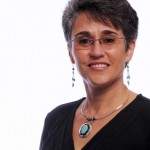
Professor Rosengaus
“Social Creatures: What Insects Teach Us About Survival”
Professor Rebeca Rosengaus
College of Science, Biology
Professor Rosengaus’ research tries to understand the factors that may have selected for the evolution of termite sociality. She has hypothesized that pathogens and/or parasites may have played important selection forces that favored the evolution of complex insect societies. This evolutionary question is studied by focusing on the adaptations that termites have evolved in order to resist disease. Termites nest, feed and forage in microbially-rich environments and their colonies are composed of thousands of individuals which could easily become infected either through the direct contact with pathogens or indirectly through the social interactions among nestmates. Yet, in spite the high risks of infection, termites thrive within their nests. What are the means by which these insects cope with disease? What are the costs and benefits of group-living with respect to disease susceptibility and disease resistance?
Dr. Rosengaus’ research has established that termites use several, and often simultaneous mechanisms to reduce the risks of infection, including behavioral, biochemical, immunological and social adaptations. This line of work has now expanded to consider the role of pathogenic microbes on the evolution of both termite mating strategies and social immunity whereby social interactions facilitate disease resistance at the colony-level. Her research is at the interface of evolutionary biology, behavioral and chemical ecology, immunology and genetics. Termites, as well as all other social insects, represent excellent social test organisms to answer questions about the emerging field of “socioecoimmunology.” Dr. Rosengaus’ field work takes place at the Smithsonian Tropical Research Institute in Panama and at the Redwoods in California. Her B.S. and Ph.D. are from Boston University.

Professor Ebong
“Stormy Vessels: The Glycocalyx and the Prevention of Vascular Disease”
Professor Eno Ebong
College of Engineering, Chemical Engineering and Bioengineering
Suppose you’re hiking through the forest on a sunny afternoon as a light breeze passes through the trees, gently grazing your skin. Suddenly the sky opens up and a rainstorm ensues. The trees keep you dry, but the weather worsens and 50 mile-per-hour winds start knocking down trees, leaving you unprotected. This is similar to what it’s like inside our blood vessels. Professor Ebong’s research focuses on studying the effects of the mechanical forces of blood flow on the endothelial cells that line and protect our blood vessels—work that is aimed at advancing vascular disease treatment.
Under normal circumstances, the environment inside our blood vessels resembles a quiet, breezy day. But sometimes, it gets a little stormy. For instance, at branches, constrictions, or curvatures the geometry of a vessel becomes askew. Another way to think of it is like the plumbing of a house, when water flow problems occur at the pipes’ curves. The same is true in the human body’s plumbing. Geometry changes cause flow disruptions, affect the endothelial cells that line and protect the vessel, and can eventually lead to plaque build up.
Thankfully, the vessels’ endothelial cell lining has its own protective miniature forest, called the glycocalyx. Consisting mostly of sugar molecules and proteins, this structure stands on end like a forest of tiny trees. It’s also the primary focus of Ebong’s work. By understanding the roles that the different glycocalyx components play in the material’s protective function Ebong’s group is trying to identify new targets and develop new tools to prevent, diagnose, or treat vascular disease. Ebong did her undergraduate work in mechanical engineering at MIT and holds a Ph.D. in biomedical engineering from Rensselaer Polytechnic Institute.
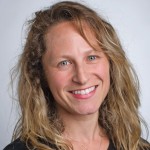
Professor Brenhouse
“How to Disarm a Time-Bomb--Understanding the Neurobiology behind Mental Illness after Early Life Stress”
Professor Heather Brenhouse
College of Science, Psychology
Professor Brenhouse studies the dynamic interaction between the brain, the body, and the environment throughout early life and adolescent development. Adverse or traumatic experience during early life is a known risk factor for the development of mental illness; however, the manifestation of disease does not typically occur until years after the adverse events occur. Using animal models with genetic, behavioral, and pharmacological manipulation, Dr. Brenhouse’s laboratory investigates in why this occurs, and how we might prevent it.
Specifically, Dr. Brenhouse researches how early life stress alters the development of inhibitory interneurons within the prefrontal cortex (PFC). Since stress plays an important role in the interaction of the brain with our immune system, the research measures how early life stress affects inflammatory responses and subsequently leads to PFC interneuron damage and behavioral dysfunction later in life. By manipulating early environment, receptor expression, or inflammatory molecules within the PFC, we can shed light on how (and when) the brain responds to developmental disturbances, and how these responses translate into vulnerability to psychiatric disorders.
Dr. Brenhouse received her B.S. in Psychobiology from Binghamton University and her Ph.D. in Experimental Psychology from Northeastern University. She did her post-doctoral work at Harvard Medical School, McLean Hospital, after which she joined the Behavioral Neuroscience faculty at Northeastern.
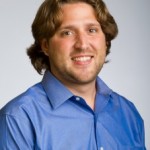
Professor Basl
“Rethinking Research: Ethical Concerns Associated with the Cognitive Enhancement of Non-Human Animals”
Professor John Basl
College of Social Sciences and Humanities, Philosophy and Religion
While Professor Basl’s primary research interests are very broad and include issues in ethics, applied ethics, philosophy of biology, philosophy of science, and epistemology, he is most intensely focused on issues of moral status. Who or what matters from the moral point of view? Why? How are we to properly account for all the things that have moral status? In particular, Dr. Basl is interested in how altering an individual’s cognitive capacities, for example by testing cognitive enhancement technologies on non-human animals, might alter our obligations towards that individual and what kinds of moral problems are raised by the creation of artificial intelligence or consciousness.
Dr. Basl’s teaching interests are even more diverse than his research interests. He primarily teaches courses on issues in biomedical ethics, environmental ethics, and the ethics of technology. However, he has also taught and is interested in courses in traditional analytic areas such as metaphysics, epistemology, and philosophy of science and biology. He earned his B.S. in Philosophy from Northeastern and his Ph.D. from the University of Wisconsin, Madison.
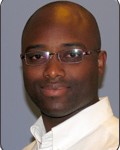
Professor Adomza
“Innovation! Using Design-Thinking to Create Business Ideas with New Meaning”
Professor Gordon Adomdza
D’Amore-McKim School of Business, Entrepreneurship & Innovation
Professor Gordon Adomdza’s research interests are in the areas of entrepreneurial opportunity discovery and validation, as well as the ideation stage of the new product development process. He also has a developing interest in sustainable business models for social innovations.
Dr. Adomdza teaches courses in design-driven innovation, using the design-thinking approach to develop new ideas. He also teaches courses in new venture creation in entrepreneurship, using market research to develop new ideas while employing simulation of the start-up process and a soft-launch to validate the ideas. Further, his pedagogical philosophy of experiential entrepreneurship, guides his role as the faculty advisor to the Entrepreneurs Club, http://www.neu.edu/entrepreneurs/, one of the most visible clubs on campus.
Gordon graduated from University of Waterloo, Ontario, Canada, in 2008 with a Ph.D in Management of Technology, and where he also received an MASc in Management Science and an MA in Applied Economics. He also received a BA in Economics from University of Ghana, West Africa.
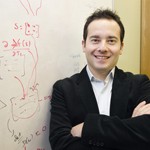
Professor Sipahi
“Engineering Complex Systems: From Idea Generation to Real World Implementation”
Professor Rifat Sipahi
Director, Complex Dynamic Systems and Control Laboratory (CDSCL)
College of Engineering, Mechanical and Industrial Engineering
Rifat Sipahi earned his Ph.D. in Mechanical Engineering at the University of Connecticut and carried out postdoctoral work at the Universite de Tecnologie de Compiegne, France before joining Northeastern University as an Assistant Professor in 2006. Dr. Sipahi is the director of Complex Dynamic Systems and Control Laboratory (CDSCL), where his team primarily focuses on applying system level approaches to understanding the behavior of dynamical systems with time delays and to creating new approaches for controlling such systems, for solutions in security, automation, and biomedical fields. Some applications that CDSCL is involved with are control of autonomous vehicles, coordination of human machine interactions, writing and holding devices that can mitigate hand tremor effects for Parkinson's patients, and creating low-cost and portable Braille writing devices for the visually impaired. Sipahi has been awarded research funding from the National Science Foundation, Defense Advanced Research Projects Agency, the Center for Integration of Medicine and Innovative Technology, and the MathWorks.
Dr. Sipahi is a Faculty-in-Residence for the Honors Program Living Learning Community in International Village. There he works to support academic excellence, integrate intellectual thought through informal and formal interactions, and provide opportunities for other faculty to interact with students.
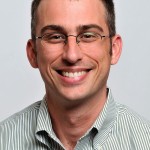
Professor Pollastri
“Neglected Tropical Disease Drug Discovery at Northeastern and the Integrated Initiative in Global Health”
Professor Michael Pollastri
Principal Investigator, Laboratory for Neglected Disease Drug Discovery,
College of Science, Chemistry & Chemical Biology
Professor Pollastri’s research focus is primarily in the area of neglected tropical disease drug discovery. His laboratory’s overarching goal is to apply current state-of-the-art drug discovery techniques to find cures for debilitating neglected diseases, which affect over a billion of the world’s poorest people. Since arriving at Northeastern University in 2009, he has built a large number of collaborations across the parasitology community, proselytizing the driving principle of Target Repurposing as a method to accelerate NTD drug discovery. His collaborators are leaders in malaria, sleeping sickness, Chagas disease, leishmaniasis, lymphatic filiariasis; medicinal chemistry efforts are focused on targeting important protein families including phosphodiesterases, kinases, and histone deacetylases.
Pollastri began his academic career in 2007 after nearly ten years working in early stage drug discovery at Pfizer, Inc. While at Pfizer, Pollastri worked on a variety of programs across therapeutic areas, focusing mostly on gene family-targeted medicinal chemistry. He has a strong interest in technology-enabled medicinal chemistry and synthesis, employing green chemistry, parallel synthesis, flow chemistry, and cheminformatics as a means to accelerate the drug discovery process and reduce costs.

Professor Madison
“Health Policy in an Era of Reform: The Obesity Challenge”
Professor Kristin Madison
School of Law
Bouvé College of Health Sciences, Department of Health Sciences
Dr. Kristin Madison, a Professor of Law and Health Sciences, writes and teaches in the areas of health economics, health law, and health policy. After receiving her undergraduate degree from the University of California at Berkeley, Professor Madison worked for two years as a research assistant with the health care consulting firm now known as the Lewin Group. She contributed to several articles assessing the impact of the delivery of mental health services. She then received a JD from Yale Law School and a Ph.D. in economics from Stanford University before joining the University of Pennsylvania law faculty in 2001; she came to Northeastern University in 2011.
Dr. Madison’s early work investigated the impact of health care provider affiliations on patient treatment and outcomes. A later series of articles explored health care quality reporting, its regulation, and its implications for medical professionalism, antitrust law, health care fraud regulation, and health care quality regulation more generally. More recently, she has written about the legal, ethical, and policy issues surrounding employers’ use of financial incentives to improve employee health. She is currently examining the relationship between regulation and health policy innovation, as well as ways to reshape health care regulation in light of the greater availability of health care information.

Professor Poriss
“Divas: Musical Performance and the Roots of Celebrity Culture”
Professor Hilary Poriss
College of Arts, Media, and Design, Music
Faculty Fellow, University Scholars Program
Hilary Poriss received her B.A. from Bates College and her M.A. and Ph.D. in music history from the University of Chicago. Her primary research interests are in the areas of 19th-century Italian and French opera, performance practice, diva culture, and the aesthetics of 19th-century musical culture. She is the author of Changing the Score: Arias, Prima Donnas, and the Authority of Performance, and the co-editor of Fashions and Legacies of Nineteenth-Century Italian Opera and of The Arts of the Prima Donna in the Long Nineteenth Century.
At Northeastern Professor Poriss teaches survey classes in music history, as well as courses in opera history, the history of the music industry, and theories of performance. Her newest projects are a biography of the nineteenth-century diva Pauline Viardot (1821-1910) and a book about Gioachino Rossini’s most famous opera, The Barber of Seville. Professor Poriss has taught previously at the University of Cincinnati, the University of Chicago, and Columbia University.

Professor Caligiuri
“Corporate Volunteerism: How Companies Do Well When their Employees Do Good”
Distinguished Professor Paula Caligiuri
D’Amore-McKim School of Business, International Business and Strategy
Faculty Fellow, University Scholars Program
Paula Caligiuri is one of the world’s leading experts on strategic human resource management, with a focus on global leadership development, international assignee management, and cultural agility. Her influential books include Cultural Agility: Building a Pipeline of Successful Global Professionals and Get a Life, Not a Job: Do What You Love and Let Your Talents Work for You. As a consultant, Dr. Caligiuri works extensively with leading organizations on topics related to the selection and development of culturally agile professionals. She has consulted with private sector, military, and non-profit organizations in the United States, Asia, Australia, and Europe. Dr. Caligiuri is also a frequent expert guest on CNN, where she had a bi-weekly segment called “Reclaim Your Career.”
One of Dr. Caligiuri’s current projects focuses on the development of international volunteerism programs within corporations. A recent Deloitte Volunteer IMPACT Survey found that employees who “always” or “often” volunteer through their company’s employee volunteerism programs are more positive about, satisfied with, committed to, and less likely to leave their organizations. Those employees who rarely or never volunteered felt less positive about their employers. Dr. Caligiuri’s research has found that employee engagement can be increased through corporate volunteerism programs — when the experiential opportunities are structured well. Dr. Caligiuri did her graduate work in Industrial/Organizational Psychology at Penn State.
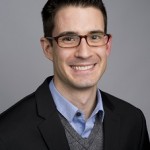 “Suburbanization and Sprawl: The Evolution of Metropolitan Development in the US”
“Suburbanization and Sprawl: The Evolution of Metropolitan Development in the US”
Professor Thomas Vicino
College of Social Sciences and Humanities, Political Science and Public Policy and Urban Affairs
Professor Vicino specializes in the political economy of cities and suburbs, focusing on issues of metropolitan development, housing, and demographic analysis. He is the author of four books, including: Suburban Crossroads: The Fight for Local Control of Immigration Policy and Transforming Race and Class in Suburbia: Decline in Metropolitan Baltimore and co-author of the bestselling book Cities and Suburbs: New Metropolitan Realities in the US.
In 2014, Professor Vicino was a U.S. Fulbright Core Scholar to Brazil, where he was a Visiting Associate Professor of Political Economy in the Graduate Program in Social Sciences at Pontificia Universidade Catolica (PUC Minas) in Belo Horizonte, Brazil. Professor Vicino proudly serves as the faculty advisor to two student organizations at Northeastern University: the College Democrats and Huskies for Alternative Transportation. He received a B.S. in communication studies and political science from the University of Miami and a Ph.D. in public policy from the University of Maryland.

Professor Cram
“How Cells Sense and Respond to Mechanical Forces”
Professor Erin Cram
College of Science, Biology
Faculty Fellow, University Scholars Program
Professor Cram’s research focuses on interactions between cells and their extracellular environment and how they play an essential role in controlling tissue architecture, cell survival, and cell migration. These processes are important for normal animal development and are disrupted in many human diseases. The Cram lab uses the nematode C. elegans to investigate the conserved processes that control cell migration and mechanotransduction in vivo. In collaboration with chemical engineers, Dr. Cram is also working to improve production of drug compounds by the medicinal plant Catharanthus roseus.
Cram earned her Ph.D. from the University of California, Berkeley. Before joining Northeastern in 2006, she conducted postdoctoral research at Princeton University from 2001-2006. Recent publications include “CCDC-55 is Required for Larval Development and Distal Tip Cell Migration in Caenorhabditis Elegans” in Mechanisms of Development and “A Novel mutation in Beta Integrin Reveals an Integrin-Mediated Interaction between the Extracellular Matrix and ci-1/p27KIP1” in PloS One. Dr. Cram earned Northeastern's Excellence in Teaching Award in 2011.

Professor Rappaport
“Advance Airport Security Scanners: How They Work, But Why Superman Wouldn't Be Satisfied with What They Reveal”
Distinguished Professor Carey Rappaport
College of Engineering, Electrical and Computer Engineering
Faculty Fellow, University Scholars Program
Professor Rappaport serves as an Associate Director of the Bernard M. Gordon Center for Subsurface Sensing and Imaging Systems (CENSSIS) and Deputy Director of Awareness and Localization of Explosives-Related Threats (ALERT), a Department of Homeland Security Center of Excellence with a major research site at Northeastern. Dr. Rappaport has been a professor at Northeastern since 1987, mentoring scores of undergraduate researchers along the way.
He received dual SBs, SM, and Eng from MIT in 1982 and the Ph.D. from MIT in 1987. Dr. Rappaport’s research has focused upon developing and integrating electromagnetic, acoustic, and optical sensing technologies to detect hidden objects and to use those technologies to meet real world subsurface challenges ranging from humanitarian demining to noninvasive breast cancer detection.

Professor Sternad
“The Wonder of Human Movement: How the Brain Controls the Body”
Professor Dagmar Sternad
Colleges of Engineering and Science, Biology, Physics, and Electrical and Computer Engineering
Dagmar Sternad is an internationally known authority in the field of experimental and computational motor neuroscience. Her academic career has been diverse, spanning the disciplines of movement science, English linguistics and literature, experimental psychology, neuroscience and kinesiology, leading her to Northeastern in 2008 as Professor of Biology, Electrical and Computer Engineering, and Physics. Her studies of human motor control and learning shed light on neurological defects in Parkinson patients, children with dystonia, and individuals who have suffered strokes. Her interdisciplinary research has been published in five popular books and over 100 peer-reviewed articles.
Professor Sternad is director of the Action Lab; her research is funded by the National Institutes of Health, the National Science Foundation, the American Heart Association and the Office of Naval Research, among others. Professor Sternad was awarded a BA with highest honors in 1986 in Movement Science and English Linguistics/Literature from Technical University of Munich, Germany; an MS in 1991 in Experimental Psychology from the University of Connecticut; and received a PhD, summa cum laude, in Experimental Psychology from the University of Connecticut in 1995. In 2014, Professor Sternad held the Robert D. Klein University Lectureship, which honors a member of the teaching faculty who has contributed with distinction to his or her own field of study.
